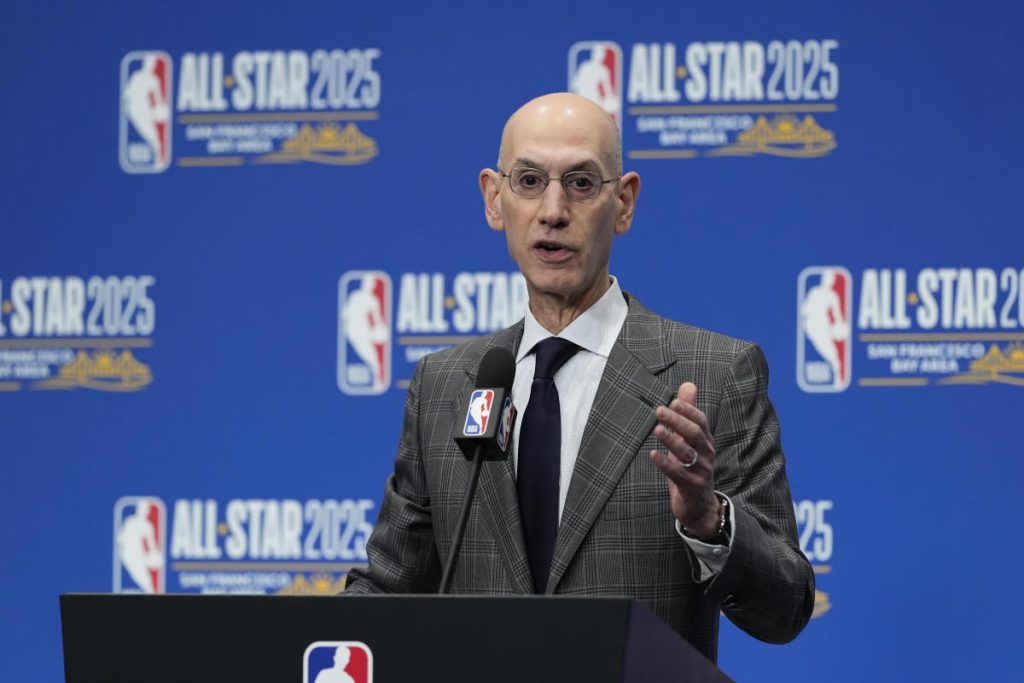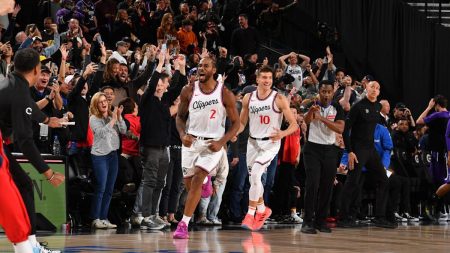Embracing the Criticism
SAN FRANCISCO — NBA Commissioner Adam Silver is no stranger to the spotlight or the criticism that comes with it. The NBA, a league that is constantly under the microscope, is subject to daily scrutiny from fans, media, and even players themselves. Silver, known for his openness and willingness to engage, takes it all in stride. During his annual news conference at All-Star Weekend, held this year at Chase Center, Silver emphasized the importance of listening to both praise and critique. “I try to read it all, frankly, and we try to absorb it at the league office,” he said. For Silver, criticism is not just a necessary evil but a valuable tool for improvement. “The state of the game is excellent, but it’s perfectly appropriate to be critical of the game, and I find it very helpful,” he added. This approach sets him apart from his predecessor, David Stern, who was less inclined to engage with public criticism. Silver’s willingness to listen and adapt is a hallmark of his tenure.
Navigating the 3-Point Revolution
One of the most prevalent critiques Silver faces is the overreliance on 3-point shooting. The NBA has seen a significant increase in 3-point attempts over the past decade, and this season, teams are taking two more 3-pointers per game than last year. Silver, who has long embraced the analytics behind the 3-point shot, has started to reconsider its dominance. “I’ve also learned, having been around this game for a long time, not to overreact,” he said. Silver recognizes the beauty of the game but acknowledges that the trend towards 3-point shooting may have gone too far. “Is there a fix that comes to mind that would improve the game and potentially reduce the amount of 3-point shooting? There wasn’t one that he had to suggest,” Silver quoted from an interview with Warriors coach Steve Kerr. While Silver is open to making changes, he is also cautious about overcorrecting, understanding the delicate balance between innovation and tradition.
Money and the Business of Basketball
The financial aspects of the NBA, including high-profile trades and contract negotiations, are another area of frequent criticism. The league has seen significant financial decisions impact the roster dynamics of teams, such as the trades involving Luka Dončić, Anthony Davis, and Karl-Anthony Towns. Silver’s stance on these matters is one of pragmatism and flexibility. “We have a Competition Committee, and it’s something we talk about all the time,” he said. “If there’s a way to improve the game, believe me, we’ll be all over it.” The recent changes to perimeter defense, which allowed for more physicality and were generally well-received, demonstrate Silver’s influence and willingness to act. However, he also understands the limits of his control, especially when it comes to the financial decisions made by teams and players.
Officiating in the Digital Age
Officiating is another hot-button issue in the NBA, particularly in the age of high-definition cameras and social media. The league is under constant pressure to ensure fair play, but the scrutiny can be overwhelming. “The challenges with a million camera angles and a million more opinions on social media and in NBA locker rooms are immense,” Silver acknowledged. Despite the challenges, he believes in the importance of transparency and is committed to finding ways to improve officiating. “We have to up our game at the same time as we work with our partners and the media,” he said. Silver’s approach to officiating reflects his broader philosophy: be open to feedback and ready to make changes when necessary.
Innovation and the Future of the NBA
Silver’s tenure has been marked by a willingness to innovate and experiment. The introduction of the play-in tournament and the in-season NBA Cup are examples of his openness to new ideas. “Many great ideas have come from outside this league,” he said. “We’ve made plenty of tweaks over the years.” The changes to the All-Star Game format, such as the unique drafting process by TNT analysts Charles Barkley, Shaquille O’Neal, and Kenny Smith, demonstrate his commitment to keeping the game fresh and engaging. “I like the challenge, frankly, because I think for the league, and together with our partners, we have to up our game at the same time,” Silver said. His flexibility and willingness to try new things are critical in a rapidly evolving sports landscape.
Balancing Tradition and Progress
At the heart of Silver’s approach is a deep appreciation for the game he loves. He understands the importance of balancing tradition with progress and is often faced with the challenge of maintaining the NBA’s rich history while embracing the future. The recent All-Star Weekend in San Francisco, held in the opulent Chase Center, highlighted this dichotomy. While the event showcased the league’s modernity, it also revealed the need to connect with the younger, more diverse fan base. “Sunday’s All-Star Game is proof of his flexibility,” noted one observer. Silver’s challenge is to blend evolution, ambition, and his own sensibilities to ensure the NBA remains a beloved and exciting sport for generations to come.











